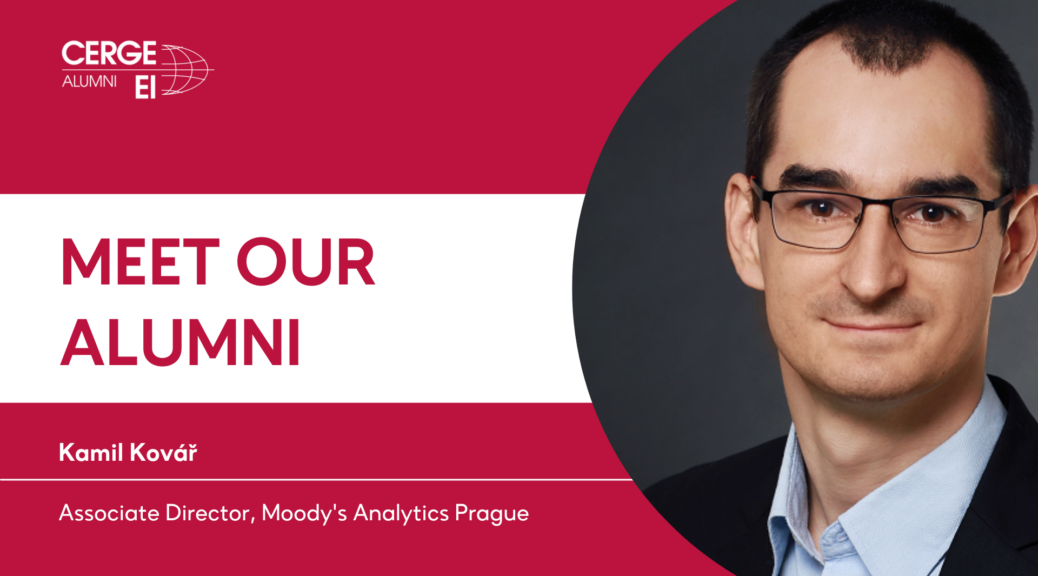Kamil Kovář, our 2022 PhD in Economics graduate, works as Associate Director at Moody’s Analytics Prague. In his work, he focuses on Euro zone macroeconomic outlook. What are the biggest challenges the Euro zone faces in these turbulent times? And what does he like about his work?
You studied London School of Economics before coming to CERGE-EI. Why did you choose CERGE-EI for your PhD?
I wonder whether the better question is why I went to LSE for my Master’s. I always wanted to work in Czech Republic, and I never wanted to have a career in academia. A foreign PhD would have relatively little value for me. I felt that moving abroad for 5 years for a PhD would make me lose my social and other connections in Czech Republic, and would be a time-inconsistent plan with respect to coming back. A PhD in Czech Republic was the way forward, and there was little doubt of what choice I should make in this case – there is no doubt that CERGE-EI’s PhD program is the best in the country.
You’ve been working for Moody’s Analytics since 2019 as Associate Director. How did your CERGE-EI education prepare you for what you do today?
It is hard to imagine what my work would look like if I hadn’t studied at CERGE-EI. While I think I did have soft skills from my previous studies, studying at CERGE-EI allowed me to fully refine the hard skills that greatly increased the marginal product of my work.
As for writing a thesis, going through the process is a unique experience. There is nothing like going from a rough idea to a fully fleshed out paper and doing the very detailed analysis along the way. While one never has the time to do the same level of analysis in the outside world, it is still great to have an experience with such detailed work as a reference point. True, sometimes one wonders whether the marginal utility is higher than the marginal cost, but I did have a clear idea why I am doing it, so I was not hesitating in that way.
In your work, you focus on Euro zone macroeconomic outlook. From this prospective, what are the biggest challenges the Euro zone faces in these turbulent times?
Earlier in the year it seemed that getting through winter, especially if winter would turn out to be abnormally cold, would be the main challenge. The last few months have dispelled these worries, barring some further and significantly negative shocks. Gas supplies this winter will be sufficient. Even though Europe is still likely to undergo a mild recession, this should be manageable. The focus is shifting back to more medium-term worries – next winter can be a challenge in terms of gas supplies, the European industrial sector might struggle with competitiveness, the political situation could become problematic in face of persistently high energy prices and large migration flows, and debt worries could re-ignite. This list makes it clear that it is hard to be too optimistic about the medium and long-term outlooks for the euro zone.
What do you like the most about your job and what is the most challenging for you?
I like the variety of tasks I do throughout every month. Some weeks I spend a lot of time writing analyses, other weeks I do programming or modeling. Things never get boring for me. I learn a lot of new stuff along the way. The most challenging thing is managing all my tasks and accepting that I have to leave the work less detailed than I would sometimes wish.
